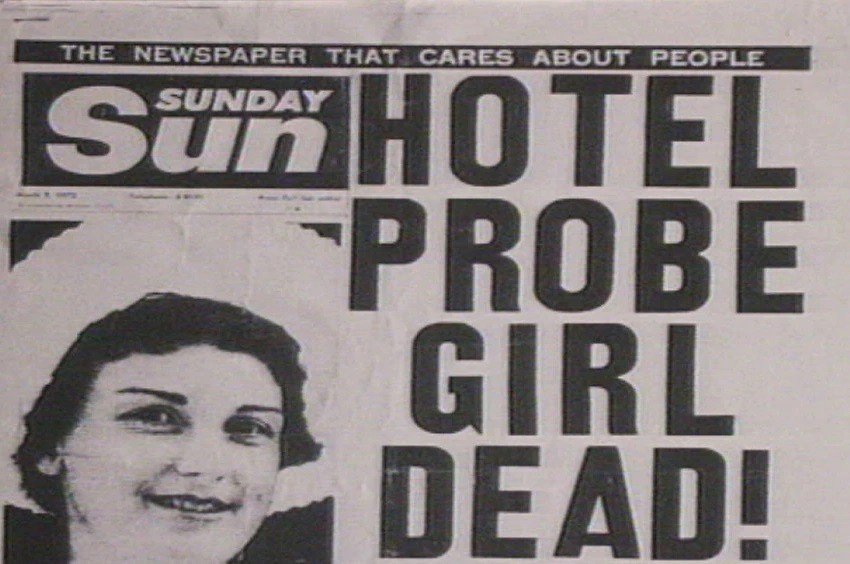The criminal milieu around Shirley Brifman
By A/Professor Mark Lauchs, 2021 John Oxley Library Honorary Fellow | 24 August 2022
This blog was written by 2021 John Oxley Library Honorary Fellow A/Professor Mark Lauchs as part of his research project, Social Networks of Crime and Corruption: the First and Second Jokes.
Shirley Brifman was one of those magical people who could make friends with anyone. She could attract people from any part of society and bring them into her circle where she would create productive and successful partnerships. Today she would be working in a ASX top 50 company. In the 1960s she was a sex worker. The combination of her role and charisma put her at the centre of a social network of crime and corruption. Normally such as network is hidden from public view but, fortunately for history, Shirley gave evidence against corrupt police and provided us with an insight to the community. More fortunately for us, Shirley was a very talkative person and tended to want to tell a story about the people rather than just provide evidence.
The Phil Dickie Collection includes transcripts of her interviews with police from the early 1970s. The interviews were conducted to gather evidence about police corruption but in providing the evidence Shirley provides an autobiographical description of what life was like in her criminal milieu. She talks about the people, socialising, daily life, romance and generally builds a picture that humanises the characters that made up the dramatis personae of the dark network of illicit vice.

March 4, 1972. The Sunday Sun's front page report on Brifman's death. Sunday Sun, Mirror Newspapers, Brisbane, 1971-1992. John Oxley Library, State Library of Queensland.
Shirley ran parlours in Brisbane and Sydney and worked at every level of the illicit sex industry. Sex work is social; its services could be characterised as part of the entertainment industry. But as a female worker in the industry, her social circle was very distinct depending on the gender of the member of that circle. The women she mixed with either worked in the same industry or were in other parts of the criminal world; in the sixties the non-sex workers were mostly professional shoplifters. The men came from three groups: customers, police and criminals.
It would be reasonable to think that these various groups kept themselves apart, but that was not the case. They socialised together. They shared their lives together. Many formed romantic relationships across groups. But at the centre was Shirley holding court as the Queen of the scene. She was the broker who could bring people together for good and ill. When someone needed help, they went to see Shirley. When someone needed advice, they went to see Shirley. When two people needed to communicate but could not be seen to meet, Shirley was the interlocutor.
One of the outcomes from this research will be a social network map displaying this milieu. But this cannot be the only outcome. At my first international conference I met an American researcher who told me the real value of research wasn’t the numbers but the story. I want to tell this story not as the sensational expose of the underworld but as the human interaction of normal people in abnormal lives. I also want to enliven the story with the material from the Library’s collection including creating an interactive map of the location of events with images of the streetscapes and people.
A/Professor Mark Lauchs, 2021 John Oxley Library Honorary Fellow.
Collections
- 27307 Phil Dickie Collection 1964-1989. John Oxley Library, State Library of Queensland. Please note this collection has restricted access. 24 hours notice is required to view the collection, please contact qldmemory@slq.qld.gov.au for more information.
- Sydney noir : the golden years by Michael Duffy and Nick Hordern, NewSouth, Sydney, 2017. John Oxley Library, State Library of Queensland.
- Three crooked kings by Matthew Condon, University of Queensland Press, Brisbane, 2013. John Oxley Library, State Library of Queensland.
Other links
- Brifman, Shirley Margaret (1935–1972), Australian Dictionary of Biography. Phil Dickie.
- Shirley Brifman: a timeline of a brothel madam and whistleblower, ABC News, 19 January 2017.
- Shirley Brifman: Coroner to investigate whether inquest should be done into 1972 death of Brisbane brothel madam, ABC News, 19 January 2017.
Other blogs
Comments
Your email address will not be published.
We welcome relevant, respectful comments.